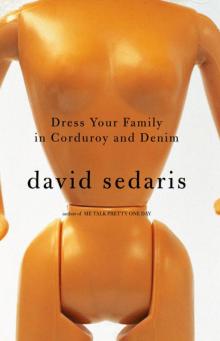
The plot against America
Philip Roth
Fiction
Amazon.com Review"What if" scenarios are often suspect. They are sometimes thinly veiled tales of the gospel according to the author, taking on the claustrophobic air of a personal fantasia that can't be shared. Such is not the case with Philip Roth's tour de force, The Plot Against America. It is a credible, fully-realized picture of what could happen anywhere, at any time, if the right people and circumstances come together.The Plot Against America explores a wholly imagined thesis and sees it through to the end: Charles A. Lindbergh defeats FDR for the Presidency in 1940. Lindbergh, the "Lone Eagle," captured the country's imagination by his solo Atlantic crossing in 1927 in the monoplane, Spirit of St. Louis, then had the country's sympathy upon the kidnapping and murder of his young son. He was a true American hero: brave, modest, handsome, a patriot. According to some reliable sources, he was also a rabid isolationist, Nazi sympathizer, and a crypto-fascist. It is these latter attributes of Lindbergh that inform the novel.The story is framed in Roth's own family history: the family flat in Weequahic, the neighbors, his parents, Bess and Herman, his brother, Sandy and seven-year-old Philip. Jewishness is always the scrim through which Roth examines American contemporary culture. His detractors say that he sees persecution everywhere, that he is vigilant in "Keeping faith with the certainty of Jewish travail"; his less severe critics might cavil about his portrayal of Jewish mothers and his sexual obsession, but generally give him good marks, and his fans read every word he writes and heap honors upon him. This novel will engage and satisfy every camp."Fear presides over these memories, a perpetual fear. Of course, no childhood is without its terrors, yet I wonder if I would have been a less frightened boy if Lindbergh hadn't been president or if I hadn't been the offspring of Jews." This is the opening paragraph of the book, which sets the stage and tone for all that follows. Fear is palpable throughout; fear of things both real and imagined. A central event of the novel is the relocation effort made through the Office of American Absorption, a government program whereby Jews would be placed, family by family, across the nation, thereby breaking up their neighborhoods--ghettos--and removing them from each other and from any kind of ethnic solidarity. The impact this edict has on Philip and all around him is horrific and life-changing. Throughout the novel, Roth interweaves historical names such as Walter Winchell, who tries to run against Lindbergh. The twist at the end is more than surprising--it is positively ingenious.Roth has written a magnificent novel, arguably his best work in a long time. It is tempting to equate his scenario with current events, but resist, resist. Of course it is a cautionary tale, but, beyond that, it is a contribution to American letters by a man working at the top of his powers. --Valerie RyanFrom Publishers WeeklyDuring his long career, Roth has shown himself a master at creating fictional doppelgängers. In this stunning novel, he creates a mesmerizing alternate world as well, in which Charles A. Lindbergh defeats FDR in the 1940 presidential election, and Philip, his parents and his brother weather the storm in Newark, N.J. Incorporating Lindbergh's actual radio address in which he accused the British and the Jews of trying to force America into a foreign war, Roth builds an eerily logical narrative that shows how isolationists in and out of government, emboldened by Lindbergh's blatant anti-Semitism (he invites von Ribbentrop to the White House, etc.), enact new laws and create an atmosphere of religious hatred that culminates in nationwide pogroms.Historical figures such as Walter Winchell, Fiorello La Guardia and Henry Ford inhabit this chillingly plausible fiction, which is as suspenseful as the best thrillers and illustrates how easily people can be persuaded by self-interest to abandon morality. The novel is, in addition, a moving family drama, in which Philip's fiercely ethical father, Herman, finds himself unable to protect his loved ones, and a family schism develops between those who understand the eventual outcome of Lindbergh's policies and those who are co-opted into abetting their own potential destruction. Many episodes are touching and hilarious: young Philip experiences the usual fears and misapprehensions of a pre-adolescent; locks himself into a neighbor's bathroom; gets into dangerous mischief with a friend; watches his cousin masturbating with no comprehension of the act. In the balance of personal, domestic and national events, the novel is one of Roth's most deft creations, and if the lollapalooza of an ending is bizarre with its revisionist theory about the motives behind Lindbergh's anti-Semitism, it's the subtext about what can happen when government limits religious liberties in the name of the national interest that gives the novel moral authority. Roth's writing has never been so direct and accessible while retaining its stylistic precision and acute insights into human foibles and follies. Copyright © Reed Business Information, a division of Reed Elsevier Inc. All rights reserved.
Read online

















